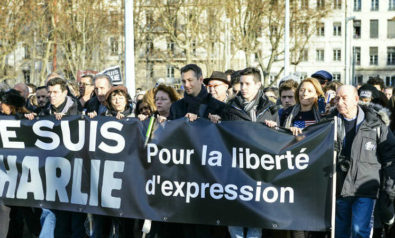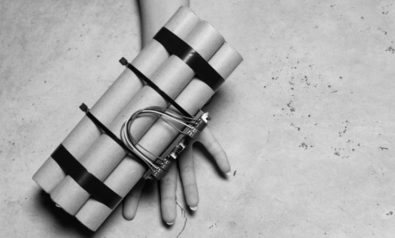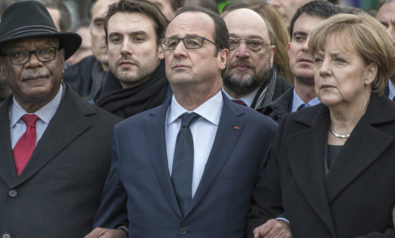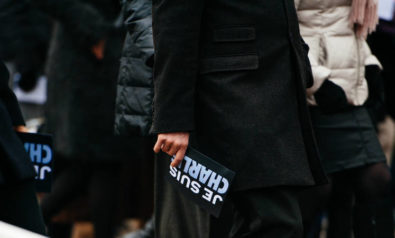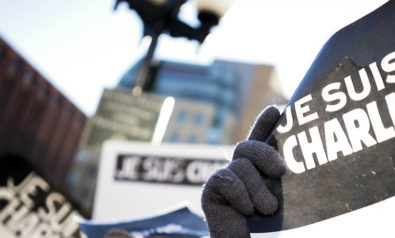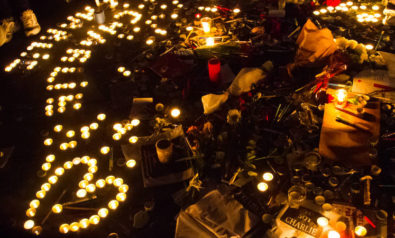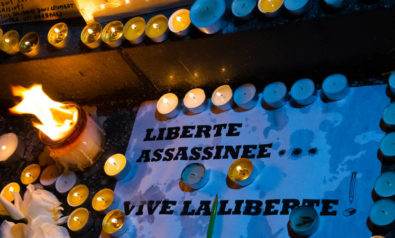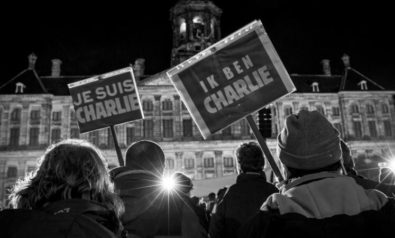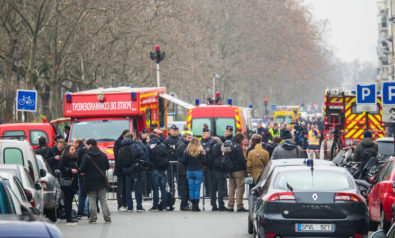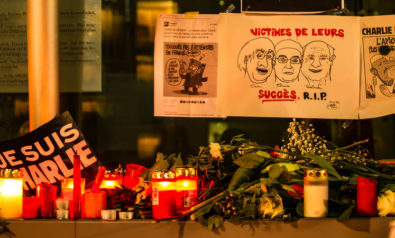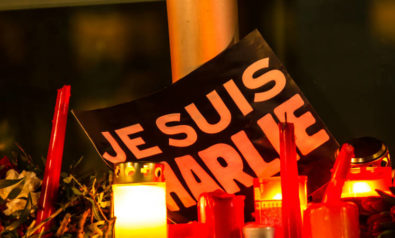France has witnessed its deadliest attack in decades, but who orchestrated it?
Background
On January 7, the Paris headquarters of Charlie Hebdo, a French satirical magazine infamous for its controversial depictions of the Prophet Muhammad, was attacked by armed terrorists. After killing 12 people, including two police officers, the assailants — French-born brothers Chérif and Saïd Kouachi — fled the scene.
In a separate incident on January 8, Amedy Coulibaly, a 32-year-old man with a history of religious extremism, became the primary suspect in a shooting that left a policewoman dead in the Parisian suburb of Montrouge. A manhunt ensued for the Kouachi brothers and Coulibaly, as well as the latter’s common law wife, Hayat Boumeddiene, who is now believed to have fled to war-torn Syria before the attacks.
On January 9, two hostage crises brought France to a standstill. The Kouachi brothers seized a printing factory north of Paris, while Coulibaly held up a Jewish supermarket in the French capital, with hostages inside. French special forces and the counterterrorism unit of the national police carried out simultaneous raids, killing the Kouachi brothers and Coulibaly. Four hostages also lost their lives at the kosher market. In total, 20 people, including the three perpetrators, were killed over the course of three days of terror in France.
Why are the France Attacks Relevant?
At the time of writing, it is unclear as to whether the attacks were part of a “lone wolf” operation or a wider foreign terrorist network. However, there are three key issues to understand.
First, the Kouachi brothers and Coulibaly were part of Buttes-Chaumont, an Islamist group that helped send jihadists to Iraq following the 2003 US-led war. The three men were well-known to French authorities. The Kouachi brothers were under American and French surveillance. The Wall Street Journal reported that they had been on a “US database of suspected terrorists — and on the US no-fly list — for years.” This has led to questions over a lax in domestic and foreign security services.
Second, Chérif Kouachi was arrested by French authorities in 2005 as he attempted to travel to Iraq via Syria. In prison, he befriended Djamel Beghal, who was serving a ten-year sentence for his role in a plot to bomb the US Embassy in Paris. Released in 2006, Kouachi was once again imprisoned in 2008 for his role in sending militants to Iraq. It is understood that Kouachi met Coulibaly in prison — the two could have met as early as 2005. Significantly, both men saw Beghal as a mentor. Kouachi’s radicalization has been linked to Farid Benyettou, a preacher associated with supporting Islamist extremism in Paris’ 19th arrondissement, a predominantly Arab district.
Third, Chérif Kouachi’s older brother, Saïd, is believed to have traveled to Yemen in 2009, where he received training from al-Qaeda in the Arabian Peninsula (AQAP), which is an offshoot of the terrorist organization.
Shortly after the Charlie Hebdo attacks on January 7, Chérif Kouachi spoke on the telephone with a French journalist, stating: “We are just telling you that we are the defenders of Prophet Mohammed. I was sent, me, Chérif Kouachi, by al-Qaeda in Yemen [AQAP]. I went there and Sheikh Anwar al-Awlaki financed my trip … before he was killed.”
Prior to his death, Coulibaly recorded a video in which he pledged allegiance to the Islamic State (IS), a jihadist group that has seized territory across Syria and Iraq, and its self-declared caliph, Abu Bakr al-Baghdadi. “I pledged allegiance to the Caliph as soon as the caliphate was declared,” he said, indicating that he may have been sent and/or influenced by IS.
While the Kouachi brothers traveled to Yemen for training, it is unlikely that al-Qaeda and IS collaborated to plan the attack, since both terrorist organizations have been at odds, particularly in Syria. As mentioned by the BBC’s Frank Gardner: “Far more plausible is the idea that with or without the tacit blessings of both al-Qaeda and IS, the three attackers decided to pool their resources and form a plan on their own.”
However, with ongoing civil wars in Syria and Iraq, and with the rise of jihadist organizations such as IS, the Middle East’s war is knocking at Europe’s door. A report by the United Nations reveals that nearly 15,000 foreign fighters representing more than 80 countries, including France and Britain, have traveled to war-torn Syria and Iraq to fight on behalf of IS and other extremist groups.
This reality is putting governments and security services worldwide on high alert. Jihadists returning to Europe pose a national security threat, bringing with them active combat experience. Officials are particularly concerned that foreign fighters will seek to radicalize vulnerable Muslims and establish home-grown terror networks on European soil.
Domestically, France’s National Front (FN), a far-right political party led by Marine Le Pen, is likely to use the attacks to further its own agenda. The party strongly opposes Arab and Muslim immigration, believing that an increased Muslim presence is a threat to secular values, national security and the idea of being “French.”
Meanwhile, in the aftermath of the terrorist attacks, Islamophobic incidents have been widely reported across France. In the meantime, security has increased across the country.
As French authorities and world leaders assess their counterterrorism policies in the wake of the Paris tragedy, difficult questions will be asked about the causes, orchestration and intelligence failure in preventing the attacks.
Fair Observer is a nonprofit organization dedicated to informing and educating global citizens about the critical issues of our time. Please donate to keep us going.
The views expressed in this article are the author’s own and do not necessarily reflect Fair Observer’s editorial policy.
Photo Credit: Hadrian / NeydtStock / Frederic Legrand – COMEO / Shutterstock.com
For more than 10 years, Fair Observer has been free, fair and independent. No billionaire owns us, no advertisers control us. We are a reader-supported nonprofit. Unlike many other publications, we keep our content free for readers regardless of where they live or whether they can afford to pay. We have no paywalls and no ads.
In the post-truth era of fake news, echo chambers and filter bubbles, we publish a plurality of perspectives from around the world. Anyone can publish with us, but everyone goes through a rigorous editorial process. So, you get fact-checked, well-reasoned content instead of noise.
We publish 2,500+ voices from 90+ countries. We also conduct education and training programs on subjects ranging from digital media and journalism to writing and critical thinking. This doesn’t come cheap. Servers, editors, trainers and web developers cost money.
Please consider supporting us on a regular basis as a recurring donor or a sustaining member.
Support Fair Observer
We rely on your support for our independence, diversity and quality.
Will you support FO’s journalism?
We rely on your support for our independence, diversity and quality.





